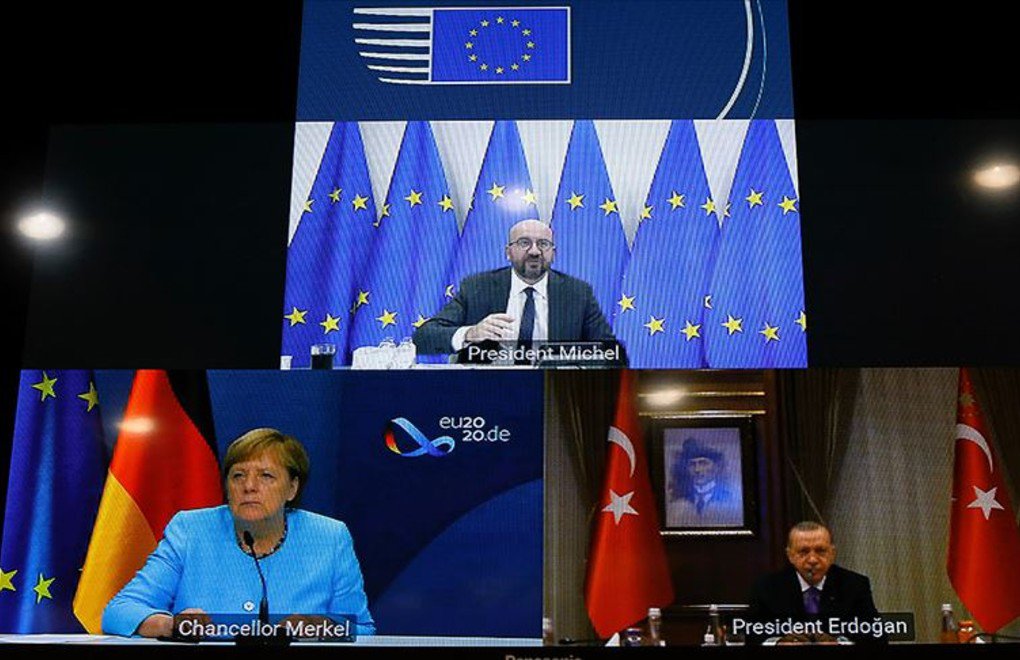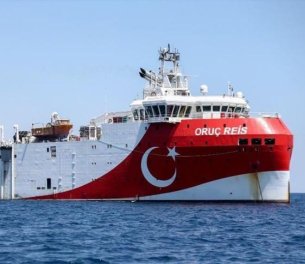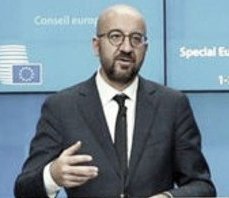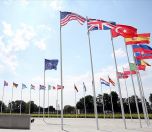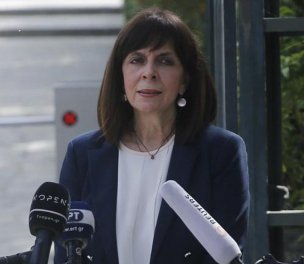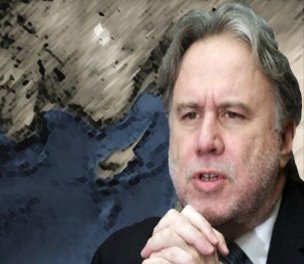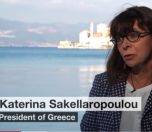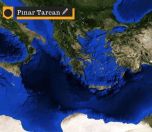* Photo: Anadolu Agency (AA)
Click to read the article in Turkish
President and ruling Justice and Development Party (AKP) Chair Recep Tayyip Erdoğan held a video conference in trilateral format with President of the European Council Charles Michel and Chancellor of Germany Angela Merkel yesterday afternoon (September 22).
As announced by the Presidency's Communications Directorate, Turkey-EU relations were discussed in the trilateral summit. In the summit where the developments in the Eastern Mediterranean were elaborated, it was stated that Turkey and Greece were ready to start exploratory talks.
Indicating that the relative momentum achieved should be protected with mutual steps in order to reduce the tension and operate the dialogue channels in the Eastern Mediterranean, President Erdoğan said that Turkey always emphasized dialogue and negotiations, and did not waive of its foresighted and serene stance despite all the provocations.
Expressing his appreciation for Germany's mediation efforts to ease the tension in the region, Erdoğan further indicated that the steps to be taken by Greece would be important in terms of reviving exploratory talks and other dialogue channels, and the course of the agreement reached.
'It will make constructive decisions'
Within this context, President Erdoğan also noted that he believed a regional conference to be held with the participation of all parties in the Eastern Mediterranean, including the Turkish Cypriots, would make positive and constructive decisions from which each party can benefit.
Expressing his hope for the EU Leaders Summit to bring a fresh breath of air in Turkey-EU relations, President Erdoğan indicated that he was confident Turkey-EU relations would again be brought under a positive climate in the event that well-intended concrete steps would be taken concerning the Customs Union, the visa liberation, and the understanding on migration.
Remarking that an EU-initiated healthy improvement in relations with Turkey would significantly contribute to the resolution of regional issues, President Erdoğan expressed his satisfaction with Merkel and Michel's efforts to create a positive agenda for Turkey-EU relations.
EU: Preparation for talks will continue
As reported by the state-run Anadolu Agency (AA), EU Spokesperson Barend Leyts also addressed the reporters following the meeting.
Turkey and Greece are prepping for a resumption of exploratory talks amid disputes in the Eastern Mediterranean, according to the EU spokesperson.
In a Tuesday video meeting, President Recep Tayyip Erdogan, Chancellor Angela Merkel, and European Council head Charles Michel "discussed a resumption of direct Greek-Turkish exploratory talks. This will be further prepared on the advisor's level," Barend Leyts told reporters afterwards.
The three leaders discussed "various aspects of the bilateral relations between the EU and Turkey" ahead of an EU Council meeting, focusing on the recent tension in the Eastern Mediterranean, he said.
CLICK - A brief summary of Eastern Mediterranean crisis
Timeline of the Eastern Mediterranean crisisThe tension between Turkey and Greece over their right to explore energy resources in the Eastern Mediterranean has seriously escalated over the last months. The latest developments leading to this escalation are briefly as follows: On July 21, Turkey issued its first Navtex alert for Oruç Reis seismic vessel's exploration activities in the Eastern Mediterranean. On July 28, Turkey announced after Germany's diplomatic efforts that it suspended hydrocarbon exploration activities and stated that it was ready to talk with Greece. On August 6, Greece and Egypt signed a maritime border agreement. On August 10, Turkey announced that its drillship Oruç Reis would resume energy exploration in the Eastern Mediterranean. It said the ship will continue its work along with the ships Cengiz Han and Ataman until August 23. On August 14, the EU foreign miniters discussed the crisis at an extraordinary meeting, calling on Turkey to end hydrocarbon exploration activities in contested waters. On August 16, Turkey issued a Navtex, announcing that its drill ship Yavuz will continue its work exploring for energy resources off the island of Cyprus. On August 23, Turkey issued another Navtex, stating that the Oruç Reis vessel would continue its activities until August 27. On August 24, Greece held joint naval drills with the US in the south of Crete island. One day later, Turkey conducted naval exercises with Italy. On August 25, Germany's Minister of Foreign Affairs Heiko Maas visited Athens and Ankara to encourage the two countires to have direct talks. On the same day, Turkey held replenishment exercises with Italy in the Eastern Mediterranean. On August 26, US President Donald Trump had phone talks with President Recep Tayyip Erdoğan and Prime Minister of Greece Kyriakos Mitsotakis, urging them to reduce tensions and start dialogue. On the same day, Turkey and the US conducted joint maritime exercises. On August 27 and 28, EU foreign ministers met with the Eastern Mediterranean crisis on the top of their agenda. The Union's foreign polict head Josep Borrell said after the meeting that Turkey's ships might be sanctioned if they continued hydrocarbon activities. Turkey's Ministry of National Defense on August 28 announced that it intercepted six F-16 fighters planes of Greece, which it said were closing in on the area where Turkey issued a Navtex. On September 1, the US lifted the arms embargo on Southern Cyprus. On September 2, Turkey issued two Navtex alerts for Russia's gunnery exercises in the Eastern Mediterranean. It was stated that Russia would conduct exercises in two different areas that correspond to Turkey's hydrocarbon exploration activities on the east and west of the Cyprus island. On September 3, NATO Secretary General Jens Stoltenberg said, "Following my discussions with Greek and Turkish leaders, the two Allies have agreed to enter into technical talks at NATO to establish mechanisms for military deconfliction to reduce the risk of incidents and accidents." On September 4, Prime Minister of Greece Kyriakos Mitsotakis said that Greece would only enter into a dialogue with Turkey if it "stops provocations" in the Eastern Mediterranean. Shortly before this statement, Turkey's Foreign Ministry stated, "Turkey is ready to enter into dialogue with Greece without any preconditions." On September 10, military delegations from Turkey and Greece had technical talks at NATO headquarters to prevent military engagement. On Septemebr 15, issuing a new NAVTEX alert for the Chios Island of Greece, Turkey argued that Greece had militarized Chios Island in violation of the 1923 Lausanne Peace Treaty. The military delegations from the two countries held the second technical meeting. On September 17, the European Parliament warned Turkey of sanctions if it continues its hydrocarbon exploration activities. On September 18, Turkey summoned Greece's envoy over a newspaper headline about President Erdoğan. On September 21, the US stated that it does not consider the Seville Map on the maritime borders of Turkey and Greece as a document that has legal significance. |
(PT/SD)




